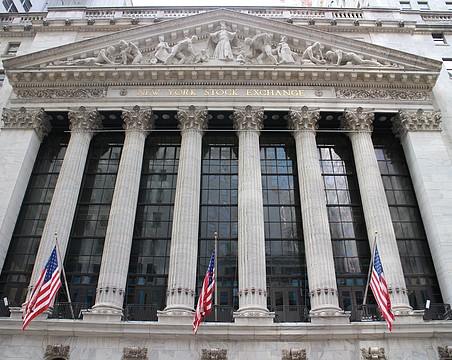If you truly understand cryptocurrencies, stablecoins, Web3.0, NFTs, blockchain and the metaverse, you are in a select minority. Most of these terms have definitions that change based on who is using them and for what purpose they are being used.
As former federal bank regulators who have handled more than a thousand bank failures over the last 50 years, we think that it is long past time for reasonable oversight to be brought to financial technology businesses. That should not be a controversial concept — every industry that solicits consumer funds is regulated. Yet, the hallmark of this new fintech world is the absence of regulation. That is always dangerous, particularly since the cryptocurrency business — comprised of 18,000 cryptocurrencies, 600 crypto exchanges, $3 trillion of crypto derivative securities and trillions of dollars of leverage — is a $10 trillion market relying on software, networks and systems that are not secure and have coughed up $16 billion of cryptocurrency to hackers. For perspective, the entire U.S. banking industry has $22 trillion of assets.
Recent events should send a sobering message to Congress and regulators. Bitcoin is trading at around $20,000, down from its high just last year of $68,000. Terra and several other stablecoins have run into financial problems, and the extent of marketable assets purportedly backing stablecoins has been challenged in at least one case by the federal government. Crypto exchanges are similarly experiencing financial pressures that are resulting in crypto holders learning that their funds may not be held in a legally separate form but as general reserves available to any creditor in bankruptcy. Confidence — an absolutely critical element of surviving in the financial services business — has been evaporating almost as fast as it expanded.
We have some recommendations derived from our experience as bank regulators and advisers about how to proceed.
- Financial services that consumers rely on should be regulated based on the activities performed and the systemic impact they might have, with focus on who provides them. It make no sense to spend 100% of the country’s prudential regulatory resources regulating banks when more than 50% of the country’s financial services occur through entities other than banks.
- Cryptocurrencies should be regulated as money and securities to the extent that they purport to be, or act like them.
- The people who establish and operate financial technology services should be required to pass the same integrity litmus tests any bank or securities firm organizer, director or controlling party must.
- The Internet must be reconstructed to be more secure, emphasizing real person authentication, good governance and strong online enforcement.
- Federal, state, and global supervisors must be transformed so that a leaner, modernized system of regulation can deploy technologies such as artificial intelligence to successfully regulate technologically enabled financial markets.
Governments have spent the past 25 years under-regulating technology while over-regulating banks. The ubiquitous nature of ransomware, the exponential growth and unwinding of crypto empires and the malicious use of technology by nation states, criminal cartels, terrorists and hackers highlight the dark side of technology which has gone unregulated far too long. We can only hope that policymakers will agree and create a smarter financial regulatory mechanism that matches modern finance.
Thomas P. Vartanian is the author of “200 Years of American Financial Panics: Crashes, Recessions, Depressions and the Technology that Will Change it All,” and executive director of the Financial Technology & Cybersecurity Center. He is a former general counsel of the FSLIC. His new book coming in February 2023 is “The Unhackable Internet.” William M. Isaac is a former chairman of the FDIC and Fifth Third Bancorp and is chairman of the Secura|Isaac Group and Blue SaaS Solutions. Both Vartanian and Isaac have homes in the Sarasota area.





